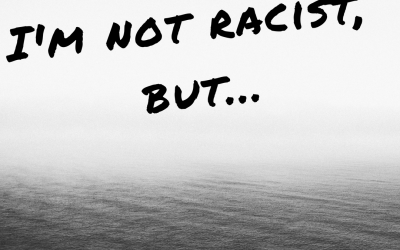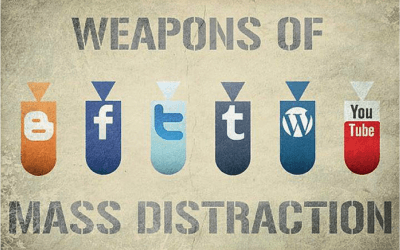News & Articles
Keeping a finger on the pulse: measuring and responding to host community attitudes in regional resettlement
* Attitudes started out positive and became more so
* Level of concern about the impact of refugees coming to Armidale reduced.
* Amount of contact with refugees increased; contact is generally experienced as positive.
* Residents see more benefits than disadvantages in the refugees coming to Armidale
Monitoring community attitudes to refugee resettlement in Armidale NSW, Research update report
The results of the longitudinal surveys corroborate the “snapshot” surveys, which each recruited a new sample. This is because the differences observed from one snapshot survey to another are also present in the within-individual changes, showing that individual’s responses to the refugees have changed … That we found a similar pattern of results increases confidence that Armidale attitudes to the Ezidi refugees generally started out positive and became more so.
Identifying nationality from non-verbal accent
… in the context of modern plural societies where one’s racial appearance may not mean anything beyond a distant heritage. Members of racial minorities who are enculturated within the mainstream culture can be recognized as such, even from the moment of first impressions.
Monitoring community attitudes during refugee resettlement in Armidale, NSW.
Link to 40-minute presentation reporting the results of five Armidale surveys conducted during the first 18 months of refugee resettlement in 2018-2019.
All in for Armidale: A whole-of-community approach to Ezidi settlement
“A unique approach to regional refugee settlement is delivering strong results in the new settlement location of Armidale.”
Monitoring community attitudes toward refugee settlement in Armidale, NSW, Report on Surveys 1-3
We report the results of three community surveys conducted during the first 12 months of refugee resettlement in Armidale 2018-19.
Monitoring community attitudes of refugee settlement in Armidale, NSW, November 2018
We report the results of two community surveys that track Armidale’s responses to refugee settlement in the town during 2018.
The Need to Belong and Loneliness In Autistic and Typical Adults
Autistic individuals are often stereotyped as lacking in social interest and, hence, in the need to belong. This research revealed that autistic and typical adults have a similar need to belong and this correlated strongly with loneliness. Sadly, unmet need to belong and loneliness were high among autistic adults.
Social media addiction: The effects of withdrawing to a virtual world
Problem:
Instantly connected through the use of smartphones, all we need to do is reach into our pockets and chat, without uttering a single word. Has instant connectivity fostered new addictive behaviours to satiate our primal need to belong?
Analysis:
Research has shown that the desire for social connectivity is a key reason for addictive Internet behaviour.
Solution:
The challenge is to go on a balanced social media diet. Slowly quit the craving. Put out that Android. Turn off the iPhone before you develop an “iDisorder” (Bjornsen & Archer, 2015). Pick up that morning newspaper. Use fingers to turn the page. Dial the landline phone. Use your voice to communicate. Be physically present in the world.
“It’s a Match”: exploring social cues of rejection on mobile dating apps
Despite their popularity, relatively little is known about how people use mobile dating apps, and how regular use of the apps might impact a person’s emotions and behaviours. We investigated one element of this question; what cues on these apps are interpreted by users as rejection and what are the emotional and social impacts of any implied rejection?
How not to be racist
Problem:
Despite an increased awareness around the problem of racism in Australia members of minority groups still report regularly experiencing negative stereotyping and prejudice.
Analysis:
Despite professing egalitarian beliefs many individuals still hold unconscious racial stereotypes. These stereotypes are expressed in many small ways that often go unnoticed by the perpetrator, but are very noticeable to those who are repeatedly on the receiving end.
Solution:
If you wish your actions would better match your intentions then take the initiative to get to know more about the diverse cultures and individuals that surround you.
#FoMO: Whose life are you really living?
Problem:
The thought of missing out on the latest online status updates is enough to cause genuine psychological and physical distress.
Analysis:
Although social media use can have its benefits, researchers argue that it can do more harm than good. It acts as a reward to decrease the negative feelings of FoMO, further reinforcing social media use. Social comparison is the driving force behind FoMO with everyone’s lives so accessible on social media.
Solution:
Accepting a FoMO diagnosis is just the start. Learning to practice gratitude for what we have and what we are is essential. We must look inwards instead of outwards and live our own life, rather than missing out on what life has to offer others.
Support for Refugees Increases When Refugees Participate in Integration Programs | SPSP
Source: Support for Refugees Increases When Refugees Participate in Integration Programs | SPSP
Monitoring community attitudes during refugee settlement in Armidale, NSW – report on survey 1
We report the results of the first of three community surveys that track Armidale’s responses to refugee settlement in the town during 2018.
The Internet: Anthem for Modern Doomed Youth?
Problem:
In a world where social media use is rising exponentially, there are many potential perils and pitfalls that may present themselves for children, adolescents and young adults.
Analysis:
The misuse of social media, particularly by those who lack the maturity to use it wisely, has the potential to corrupt generally-accepted social norms. There are implications for all facets of life including an individual’s emotional, physical and psychological well-being, along with their own personal identities and relationships.
Solution:
Responsible parents need to educate themselves about the social media applications their children use. Additionally, if they hope to maintain some control over their child’s personal development, they should monitor and be aware of their child’s online activity.
What does your bedtime say about you?
Problem:
Many people suffer from insufficient sleep but are unable to change their sleep patterns.
Analysis:
Intentions become more effective when people have positive attitudes to the necessary course of action and when they have autonomy in choosing to do this. Imagery techniques to help people carry out their intentions are particularly effective
Solution:
It has become apparent that insufficient sleep is commonly accepted and usually unchallenged. Perhaps this is due to outside pressures and a reluctance to take personal responsibility for life choices including our sleep behaviours (Loft & Cameron, 2013). The intention-behaviour gap has identified the need for autonomy, positive attitudes and self- regulation in order to change behaviour. Change is possible, but is it valued at a personal level? Chances are, your bedtime will tell.










